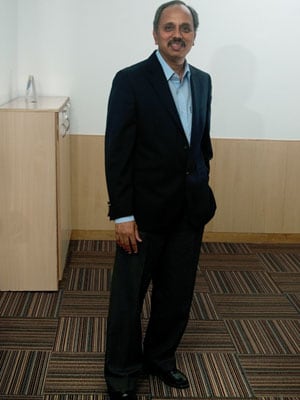
V. Raja: I Needed To Learn Something New, Reinvent Myself
V. Raja tells Forbes India that by quitting when the going is good, he's only applying former GE CEO Jack Welch's philosophy to his personal life
V. Raja
Age: 54
Designation: President & CEO, GE Healthcare India
Education: B.Com (Honours), chartered accountant and company secretary
Career: Spent over 31 years in consumer products, food and healthcare industries; 14 years at GE
Interests: Reading fiction, solving math puzzles, watching TV
Q. Why are you leaving? Did GE decide to have a change in leadership or did you want to move on?
It’s a valid question since the news broke abruptly even though I decided to move on more than three months ago and worked with GE to find the successor.
After spending 14 years at GE, with seven years in healthcare, I realised I needed to learn something new and reinvent myself. Jack Welch [former GE CEO] used to say when the going is good, that’s when you’ve got to shake the system and re-organise.
In some ways, it is my personal life that I am applying his philosophy to. The proof of the pudding [that it was my decision to quit] lies in the kind of farewell I got, from none other than the chairman [Jeff Immelt] himself and in the presence of key customers. (You can check with Azim Premji.)
Q. As you leave, what challenges does GE Healthcare face here?
The biggest challenge is on pricing. When you develop more products here based on the global platform, the ability to compete on the price point that the market expects you to offer and then make a reasonable return on that is a big challenge.
It’s a capital intensive industry. Every customer who buys from you expects you to finance it. Thanks to government policies, interest rates have gone up substantially, from about 9 to 14 percent. That’s killing the industry. I think it will lead to some slowdown in the industry in a few years. Then there are the issues of a lack of skilled manpower, be it technicians or physicians. Finally, we’ll see more and more local companies.
Today, they don’t amount to critical mass, but I don’t see that far away. The cost structure for local players would be far lower than what it is for GE and as a larger player, GE will face the brunt.
Q. Did you leave any unfinished task?
I’d have loved to see that I left a successor within the business. Any good leader ensures that he leaves a good successor, but we had to import one [Terri Bresenham, new president and CEO of GE Healthcare]. Though given her global product background, she will bring global connections and accelerate localisation.
Secondly, I should have accelerated the footprint of localisation in this market much faster than what we did. A lot of people give credit to us for what we have done [in localisation], but in my own honest measurement, we’ve just scratched the surface; we could have been more aggressive and built a larger business.
Q. Where are you going?
I am joining an electronics company, TE Connectivity [as president of its India operations]. Like healthcare, it has huge growth opportunities, both for market creation in India and for exports.
(This story appears in the 30 November, -0001 issue of Forbes India. To visit our Archives, click here.)





